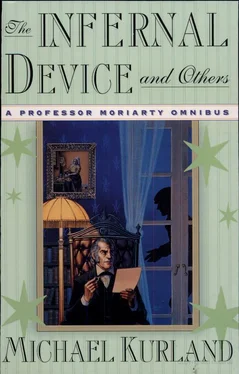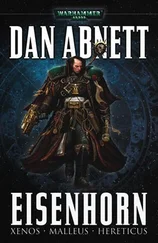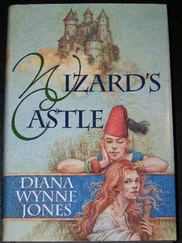"He'll keep," Barnett said. "I mean — I'm sorry, Professor, but if you know where Cecily is—"
Moriarty laced his hands together and leaned back in his chair. "It is only a supposition at the moment," he said. "It remains to be confirmed."
"Well, if you think you know even where Cecily might be, if there's a one-in-ten chance, or a one-in-a-hundred chance, give me the address," Barnett said, leaning over the desk and speaking with an unaccustomed intensity. "I'll confirm it in very short order, believe me!"
Moriarty shook his head. "I'm sorry, Barnett. I didn't mean to raise your expectations to quite the fever pitch. It will take a bit more research and investigation before we can establish the present whereabouts of the young lady; and that depends upon my being right about who has taken her and where. But the logic is consistent, and I'm confident that we will find her, and before this newborn day is out. I have the key, but I'm not yet sure that I have the right lock."
Barnett sat back down in the chair facing the desk. "I don't follow that," he said.
"I shall explain," Moriarty assured him. "But first, tell me what you have found out about the murderer. Who is he, and why is he doing this? I assume by your attitude that you are fairly sure of your facts."
"I would say so," Barnett agreed. "You were right, Professor, which I'm sure doesn't surprise you. The man is a professional magician — an escape artist. Calls himself Professor Chardino — the Invisible Man."
"Very apt, considering what we know of his abilities," Moriarty commented. "What makes you pick out this one magician from the scores of performers that must be active on the stage today?"
Barnett tossed the olive envelope he was holding onto the large chart of greater London covering one side of Moriarty's desk. "I won't bother telling you what attracted me to him in the first place," he said. "Let me just put it that his name quickly led to all the rest. And when I looked for confirmation, all the pieces fell into place as if they were waiting for me to stumble across them. First of all, he has disappeared from view, moved from his usual theatrical rooming house, and refused any offers of work for the past four months, even though he is in great demand. His daughter—"
"Ah!" Moriarty interrupted. "That's interesting. He has a daughter!"
"He had a daughter. Annie. About eighteen years old. She died on the seventh of January in mysterious circumstances."
"Fascinating!" Moriarty said. "Go on — in what way were these circumstances mysterious?"
"The death is officially listed as the result of 'injuries received in a street accident.' Supposedly, she was thrown from a carriage. But from the description of the attending physician, whom I happened to find on duty in the emergency room of St. Luke's, it appears the girl was probably tortured. And over a period of several days. The physician didn't want to come right out and say it, since he had no way to prove it, and he could get into considerable trouble if he was wrong. But that's clearly what he meant."
"You have indeed been busy, Barnett," Moriarty said. "Anything else?"
"On some obscure impulse, I went to the graveyard where the daughter is buried. I think the idea at the back of my mind was to see if I could get an address for the professor from the sexton — that's what the fellow who keeps the graves is called, isn't it?"
"Usually," Moriarty agreed. "It's also the name of a beetle of the genus Necrophorus. Go on."
"Yes, well, I was assuming that Professor Chardino might visit his daughter's grave occasionally."
"And leave his card?"
Barnett shrugged. "He might leave something. Perhaps flowers, which could then be traced back to the florist by someone with the deductive genius of a Professor James Moriarty."
"Did he?"
"As it happens, he did. Unfortunately, by the evidence of the sexton, who, come to think of it, did look a little like a beetle, they were always purchased from a florist right down the street. A little outdoor stand."
"Pity," Moriarty said. "And no card with the sexton?"
"No," Barnett said. "But" — he waved his hand at the olive envelope—"he did leave something else!"
Moriarty reached for the envelope and tore it open. "Well," he said, sliding the contents onto the one clear spot on the desk. "What's this?" He picked up the two small objects that had been in the envelope and examined them closely, comparing one with the other. "Identical medallions, except for such differences as one would expect from wear and handling, and for a tiny hole drilled at the top of one. Presumably for the link of a gold chain, as the medallions themselves would seem to be gold."
"That's it, Professor," Barnett said, smiling. "I think those are what you've been looking for."
"What Holmes had been looking for," Moriarty said. "I have no doubt. Exactly where did you find them?"
"At the gravesite, buried in the dirt."
"Ah. And what prompted you to look in the dirt?"
"The sexton. He told me that Chardino used to sit by the grave for long periods of time, talking to his daughter. And he thought that Chardino occasionally left things there besides the flowers. 'Trinkets,' he called them. So I looked, and I found two."
"You did indeed. Curious things, these." Moriarty hefted the two medallions in his hand. "They tell the whole story — and a horrible story it is."
"What do you mean?"
"This sigil has an interesting history," Moriarty said. "Oh, not these particular baubles, of course; but the design, the pattern, the notion behind it. It explains all to one who understands such things."
"And you do?"
"Indeed," Moriarty said. "As you know, I have always been interested in the obscure, the bizarre, the esoteric — the darker recesses of the human mind. I have seen you, on occasion, perusing my collection of books on these subjects."
"What has this to do with that?" Barnett asked.
"I will explain," Moriarty said. "Let us examine these medallions. On the obverse: a satanic figure, legs wide, arms akimbo, staring out at the observer. Around the figure, evenly spaced, the letters DCLXVI On the reverse" — Moriarty flipped over the medallion—"a floral design twined about the tracery letters H C. Do you agree?"
Barnett, who had picked up the other medallion, examined it closely and nodded. "That's what it looks like to me," he said.
"Let us take it from front to back," said Moriarty, holding his medallion up to the light of the desk lamp and examining it through a small lens. "The pleasant-looking figure glaring out at you is a chap named Azazel, leader of the Sleepless Ones."
"The Sleepless Ones?"
"That's right. The symbolism is very interesting. The story is in Genesis, in an abbreviated form." Moriarty stretched his hand behind him for an old black leather-bound Bible, and opened it. "Here it is: Genesis Six: 'And it came to pass, when men began to multiply on the face of the earth, and daughters were born unto them, That the sons of God saw the daughters of men that they were fair; and they took them wives of all which they chose.
" 'And the Lord said, My spirit shall not always strive with man, for that he also is flesh: yet his days shall be an hundred and twenty years.
" 'There were giants in the earth in those days; and also after that, when the sons of God came in unto the daughters of men, and they bare children to them, the same became mighty men which were of old, men of renown.
" 'And God saw that the wickedness of man was great in the earth, and that the whole imagination of the thoughts of his heart was only evil continually.' "
Moriarty closed the book. "Right after that God asks Noah to build himself an ark."
"I'm sorry, Professor, but I don't follow any of that," Barnett said. "I never really paid much attention in Sunday school."
Читать дальше












